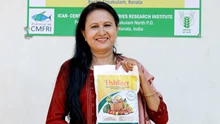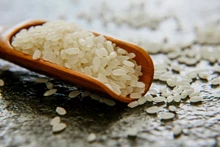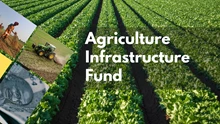
The 15th session of the UNCCD Conference of the Parties (COP15) convened in Abidjan, Cote d'Ivoire, on May 9, 2022. Heads of state and representatives from 196 member countries and the EU will meet through May 20 to discuss an urgent agenda: 'Restoring One Billion Hectares (Ha) of Degraded Land by 2030.'
The CoP15 meets at a time when the planet is experiencing unprecedented desertification, upending the food production system. According to the UNCCD's second Global Land Outlook, released on April 27, "some 16 million square kilometres of land — the size of South America — will be degraded if current trends continue." According to this estimate, up to 40% of all ice-free land has already been degraded.
"We live on land, but we also live off the land. We cannot take it for granted," said UNCCD Executive Secretary Ibrahim Thiaw shortly before the start of the CoP15. "We have already reached a tipping point: there is no longer a balance between our needs and the land's ability to regenerate and produce," he said.
The CoP15 will discuss and plan urgent actions to restore a billion hectares of degraded land between now and 2030, in addition to future-proofing land use against the effects of climate change and addressing escalating disaster risks such as droughts, sand and dust storms, and wildfires.
The UN Convention on Climate Change is the only legally binding international agreement that requires member countries to "take various actions, including reporting on measures they have taken to implement the Convention."
The food system will be scrutinized during the CoP15, both as a cause of this unprecedented land degradation and as an ultimate victim of it. This also poses a future threat to food security.
According to the UNCCD's second Land Outlook, food systems are the "single greatest driver" of land degradation and productivity loss, with crop and grazing covering 40% of the Earth's land surface.
"More than any other human activity, modern agriculture has changed the face of the planet. We urgently need to rethink our global food systems, which are responsible for 80% of deforestation, 70% of freshwater consumption, and the single greatest cause of terrestrial biodiversity loss," Thiaw said.
The CoP15 has set aside a day for food systems events and discussions, recognizing the importance of this driver in ensuring future land-use sustainability.
Perhaps this is the first UN convention related to human and environmental issues to dedicate a day to food systems. This day will focus on "the interdependence of demand-side drivers and supply chains, and will assist in putting food system considerations at the centre of debates on land degradation, climate change, and biodiversity loss."
The global non-profit WWF has released a "food manifesto" for CoP15, emphasizing the importance of reforming the current food system in order to save soils for the future. According to the manifesto, "large-scale restoration to re-establish ecosystem services and improve the livelihoods of over a billion people living on degraded farmland" is required.
Union Environment Minister Bhupender Yadav said on Tuesday that developed countries should take the lead in drastically reducing carbon emissions because they have historically and currently contributed the most to global warming.
"Caring for land is more than a conservation issue, it’s an existential one. Ensuring the land stays healthy, productive and available sustains life."- Ibrahim Thiaw, Executive Secretary, UNCCD











